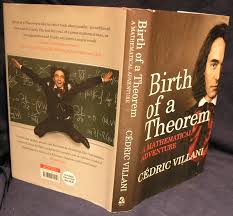One may classify the types of mathematics books written for students into two groups: books which merely teach mathematics (i.e., they present theorems and proofs, ready-made, as it were) and those books which teach one the art of mathematics (i.e., they do not merely teach one mathematical results, but also how to do mathematics). Obviously books of the latter type are harder to write and, consequently, are rare. However, I've been reading W. W. Sawyer recently and have thoroughly enjoyed his writing (even those parts that covered material I'd known before -- known albeit in the sense of 'type one' books).
Naturally, one seeks to find out other books of the sort. Therefore, if you know books that fall in the latter category, please recommend them. To be clear, this book should not merely present theorems and perhaps require the reader to supply some dry, routine proof like induction, or some such thing; but it should lead the reader, as it were, into doing mathematics; that is, the book should explain why results are needed (in other words, provide sufficient motivation), how they might have been originally discovered (before being polished into an artificial presentation, say) and explain other contextual information of relevance to a particular mathematical result. To be further clear, I have read Polya and Euler, for example, and they both seem to fall in this category too. There should definitely be others that I'm missing. Please do recommend them. Many thanks.

